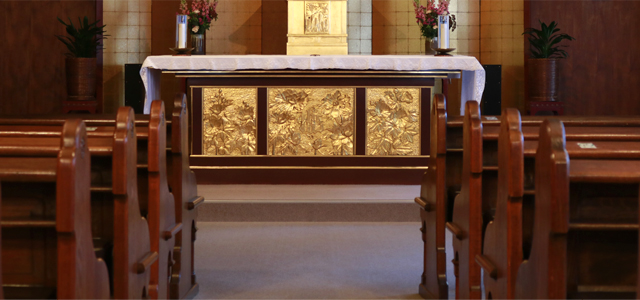
Catholic Q&A
I am of the opinion that the experience of the resurrection of Jesus that the disciples had was not something physical, but was possessed of a spiritual dimension. It is said that from the end of the Edo period to the present, most teachers of new religions began religious activities after long periods of meditation and ascetical practices. Can the fact that after experiencing the resurrection of Jesus the disciples built the Church, be viewed as such a “spiritual revelation”?
There is indeed some spiritual experience as well as an insight into something surpassing human existence, in the phenomena of the new religions. Yet we should not overlook the fundamental differences that lie between that and the experience of the disciples of Jesus.
In other words, what the disciples experienced was an encounter with the same person whom they knew intimately, a person who woke up together with them when alive. It is Jesus, who was pitilessly killed on the cross, and who had now arisen into the glory of God. The significance of the resurrection as the disciples perceived it, and the Gospel of the “kingdom of God” that Jesus in his lifetime communicated to them, were confirmed through the event of his resurrection.
The resurrection of Jesus is an event revealing the whole of Christian faith. It informs us in a forthright manner as to who God is, who is Jesus, and what is our ultimate salvation. In other words, it is an event that provides a basis of truth to the Gospel of the kingdom of God, that Jesus preached. God, through raising Jesus from the dead, revealed himself as the Almighty God, the Father who never forsakes those who trust in him, and as one who is worthy of belief beyond life and death. Also, Jesus, through his death on the cross, bore the sins of mankind as well as the wounds and darkness of the world, and revealed himself as one who heals them and brings about their recovery. Also, via the resurrection of Jesus, we are informed that the Kingdom of God has commenced in a forceful manner, and a pledge of hope has been provided for a world full of anguish, and a life of turmoil and chaos.
Of course, in religions other than Christianity too messages of hope exist in a variety of forms, and they doubtless possess also deep insights into questions of life. People however are free to deal with the issue as to what implications they may have for them. I personally find no answer to questions linked to the meaning of life, aside from the message of hope provided by Christianity, through “the resurrection of Jesus.”
